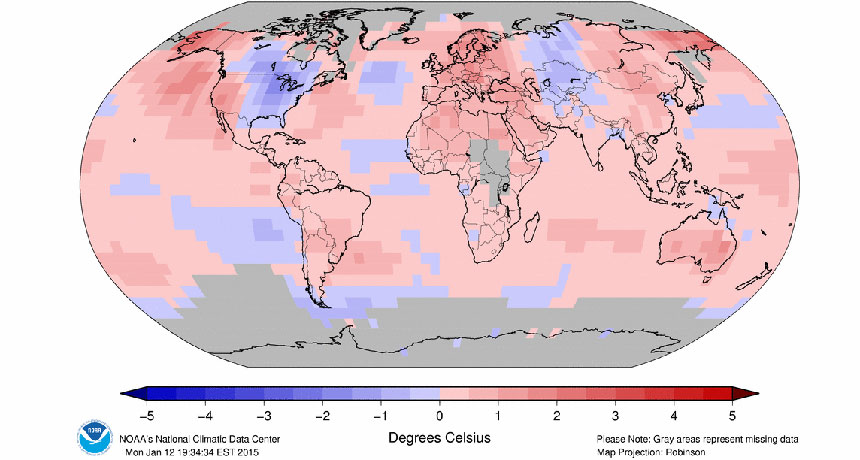Questions for ‘Concerns over Earth’s fever’

Pinkish to reddish areas are regions in 2014 that experienced average temperatures that were above the norm (what occurred in 1981 to 2010). Blue areas were cooler than the norm.
NOAA

Pinkish to reddish areas are regions in 2014 that experienced average temperatures that were above the norm (what occurred in 1981 to 2010). Blue areas were cooler than the norm.
NOAA
Register to access:
An error occurred. Please try again.
Already Registered? Enter your e-mail address above.